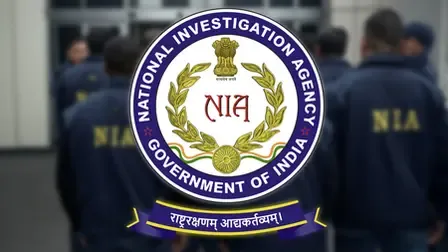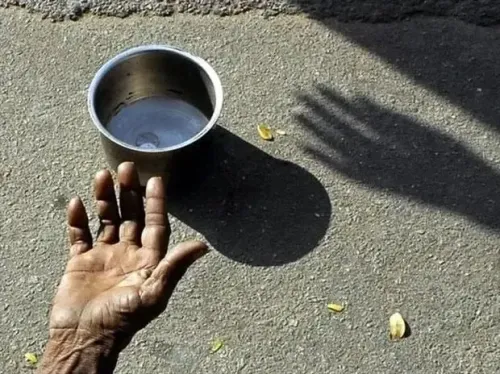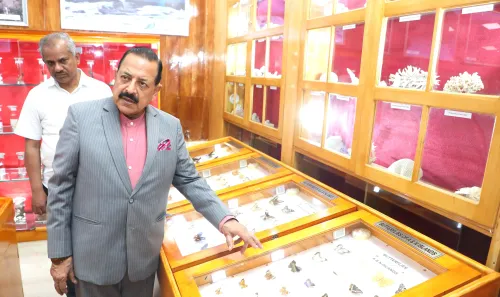Did a Pakistani National Receive 10-Year RI for a 2019 Rajasthan Fake Currency Case?

Synopsis
Key Takeaways
- 10 years of RI for a Pakistani national in a fake currency case.
- Confiscation of Rs 94,000 in counterfeit notes.
- Continued search for co-conspirator Kunpji.
- The case highlights the threat of fake currency to India's economy.
- The NIA plays a critical role in combating FICN networks.
Jaipur, Nov 26 (NationPress) A special court under the National Investigation Agency (NIA) has handed down a sentence of 10 years of rigorous imprisonment (RI) to a Pakistani individual in connection with a 2019 fake currency case in Rajasthan. The defendant, Ran Singh, has also been imposed with a penalty of Rs 30,000 linked to the confiscation of high-quality Fake Indian Currency Notes (FICN) worth Rs 94,000.
Ran Singh was apprehended in May 2019 at the Land Customs Station in Munnabao, Rajasthan, while his accomplice, another Pakistani national named Kunpji, is still on the run.
The NIA filed charges against both suspects in November 2019, and the special court in Jaipur found Ran Singh guilty under Sections 489B and 489C of the IPC, as well as Section 16 of the Unlawful Activities (Prevention) Act, imposing a fine of Rs 10,000 for each charge. Singh was discovered with 47 counterfeit notes of Rs 2,000 denomination at the Munnabao Railway Station in Barmer district.
Authorities revealed that Singh had crossed into India from Pakistan via the Thar Express and was allegedly enticed into smuggling counterfeit currency by the ISI, Pakistan's intelligence agency. His concealed currency was detected during routine checks at the railway station, leading to his arrest.
“The individual is a Pakistani national who traveled on the Thar Express. We recovered 47 fake currency notes which resulted in his detention and subsequent interrogation,” stated an officer. Officials noted that Singh hails from Mithi in Pakistan’s Sindh province. The NIA is actively pursuing the absconding Kunpji.
This case is indicative of a wider trend identified by Indian security agencies, who have frequently raised alarms regarding attempts by operatives based in Pakistan to introduce FICN into India, aiming to disrupt the economy and finance illegal activities.
The National Investigation Agency, recognized as India's leading counter-terrorism body, has been instrumental in dismantling networks related to FICN over the past decade.
Established in 2009 following the Mumbai terror attacks, the NIA is authorized to investigate crimes with national or cross-border significance, including terrorism financing, smuggling, and organized crime with national security implications, as well as cases involving foreign-based networks.
The agency collaborates regularly with state police, customs officials, and international partners.
In recent times, numerous high-quality FICN smuggling operations routed through Nepal, Bangladesh, and the Pakistan border have been neutralized as a result of investigations led by the NIA.










